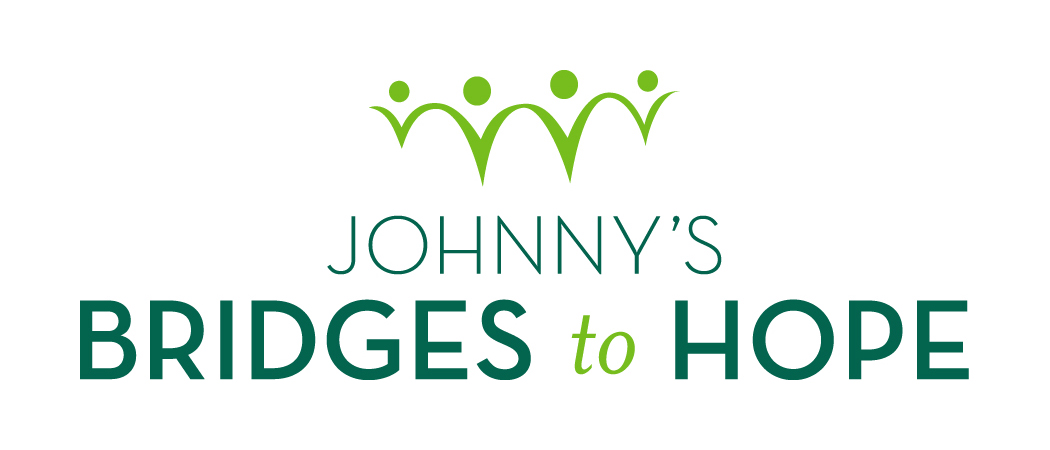Johnny's Bridges to Hope offers support for families with loved ones facing mental illness
Mental illness is a serious condition that affects mood, thinking and behavior. It can have lasting impacts on a person and family afflicted by a mental disorder.

St. Joseph’s/Candler’s Johnny’s Bridges to Hope is here to help. The free support program is a confidential resource for families seeking support and services for dealing with a mentally-ill family member.
We do not provide therapy for the family member facing mental illness, we support the rest of the family.
The main objectives of the program are:
- Improve the quality of life for the patient and family member by helping families understand the illness.
- Empower families with necessary resources to be more helpful to the patient.
- Teach skills to better address their family member’s challenging and disruptive behavior.
- Teach caregivers to reduce stress and to take care of themselves while improving parent coping skills and support.
Support group for families affected by mental illness
Families seeking support for dealing with a mentally ill family member are invited to meet monthly with a licensed clinical social worker to share their feelings and feel less alone.
All meetings are held at a location convenient for children and their families from 6 p.m. to 7 p.m. on the second Monday of each month.
Johnny's Bridges to Hope is FREE, confidential resource for families with a mentally-ill family member.
To learn more about this program or to speak to the social worker, call 912-724-9743 or email Barbara Moss-Hogan, oncology community social worker, at mosshogb@sjchs.org.
One-on-One and Family Counseling
Family is one of the most important things in the world. It can be defined as your mother, father, siblings, spouse, child, grandparents, aunts, uncles and more. Families are a source of joy and laughter and sometimes even sadness and frustration, especially if you have a family member that has been diagnosed with a mental illness. Through Johnny’s Bridges to Hope, our social worker is ready to provide families guidance and resources for dealing with a mentally ill family member through one-on-one and family counseling that includes:
- One-on-one and family counseling in a convenient location
- Maximizing the families support system through community resources
- Facilitating honest communication about the illness and their emotions
- Addressing common questions and concerns
- Providing tips on how to effectively deal with a mentally-ill family member
A Personal Cause
Ann Lytle and her husband, Charles, were so excited when their sons Chris and Johnny were born. Like all parents, they dreamed and prayed for a happy childhood and life for their children. However, Ann’s dream took a detour with her son, Johnny. At around 4 years old, Ann noticed a few signs that maybe Johnny wasn’t like the other kids. He wanted to be alone all the time, even at his own birthday party. She told pediatricians and family doctors many times during his childhood about Johnny’s behavior but was told “boys will be boys; it’s a phase; it’s nothing.” With no other resources to turn to, Ann hoped the doctors were right and Johnny would “outgrow” it.
Unfortunately behavior like this continued throughout his childhood into high school and even into college. Ann recalls he called her from college with feelings that he didn’t belong and wasn’t “like” the other people there. He felt different. This progressed to a dire situation. The family decided Johnny had to get help. Johnny was taken out of school, and eventually, after many visits with specialists, he was diagnosed with paranoid schizophrenia.
The journey that Johnny’s family took to address his mental issues made them feel like they were navigating an impossible maze. Finding the right doctor or therapist or support group was not easy due to a lack of time and effective resources to guide the family toward the right treatment plan. They too needed guidance in developing an understanding of Johnny’s condition and the family’s role in meeting his and their needs. Because of this challenging and painful journey, Ann vowed that no other family would go without having mental health resources in their community. Ann wanted to “bridge” the gap in care and give families the help they needed to give families “hope.” Through her generosity and partnership with St. Joseph’s/Candler, Johnny’s Bridges to Hope was created.
Contact Us
Johnny’s Bridges to Hope is a FREE, confidential resource for families with a mentally-ill family member. To learn more about this program or to speak to the social worker, call 912-724-9743 or email oncsupportserv@sjchs.org